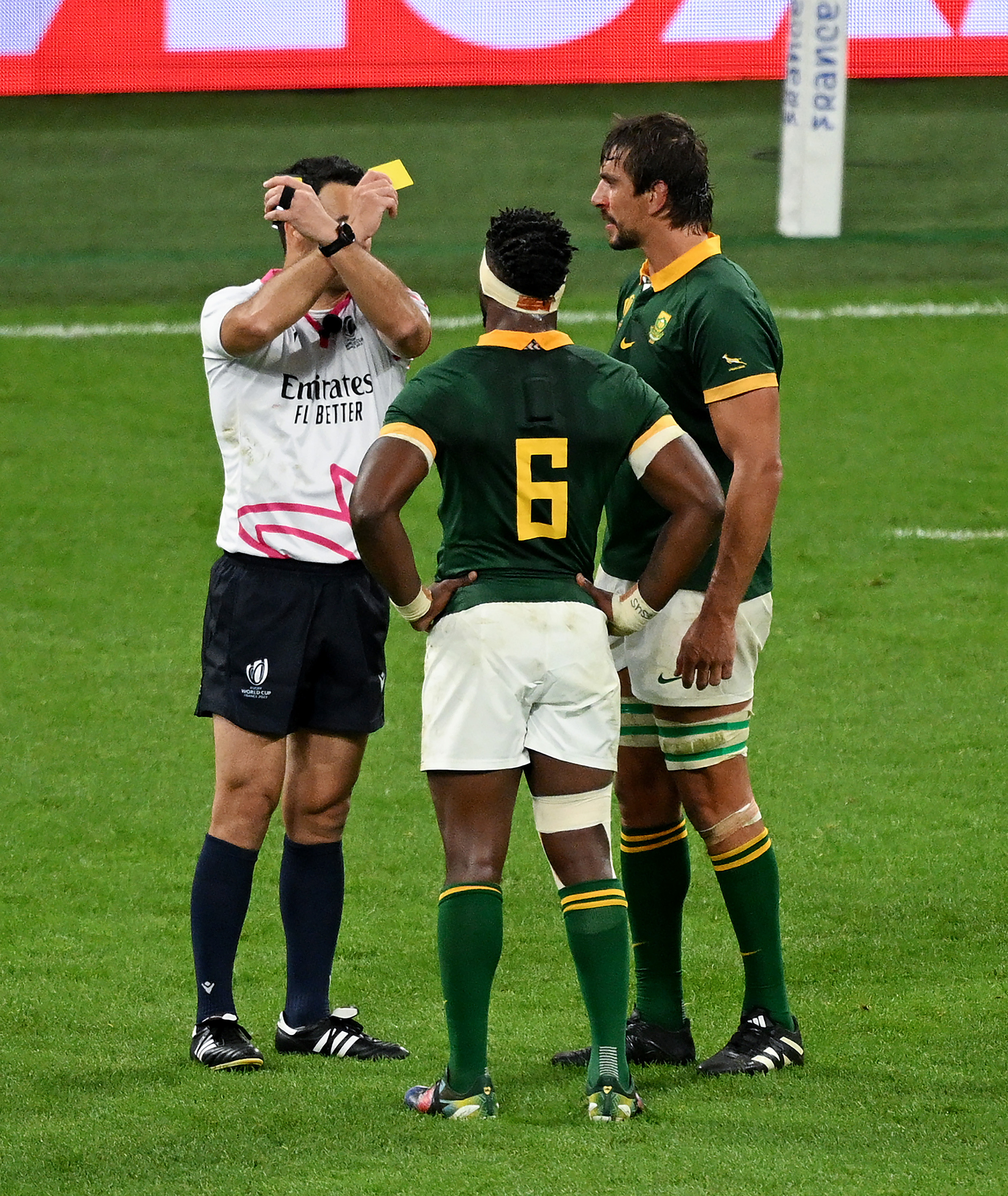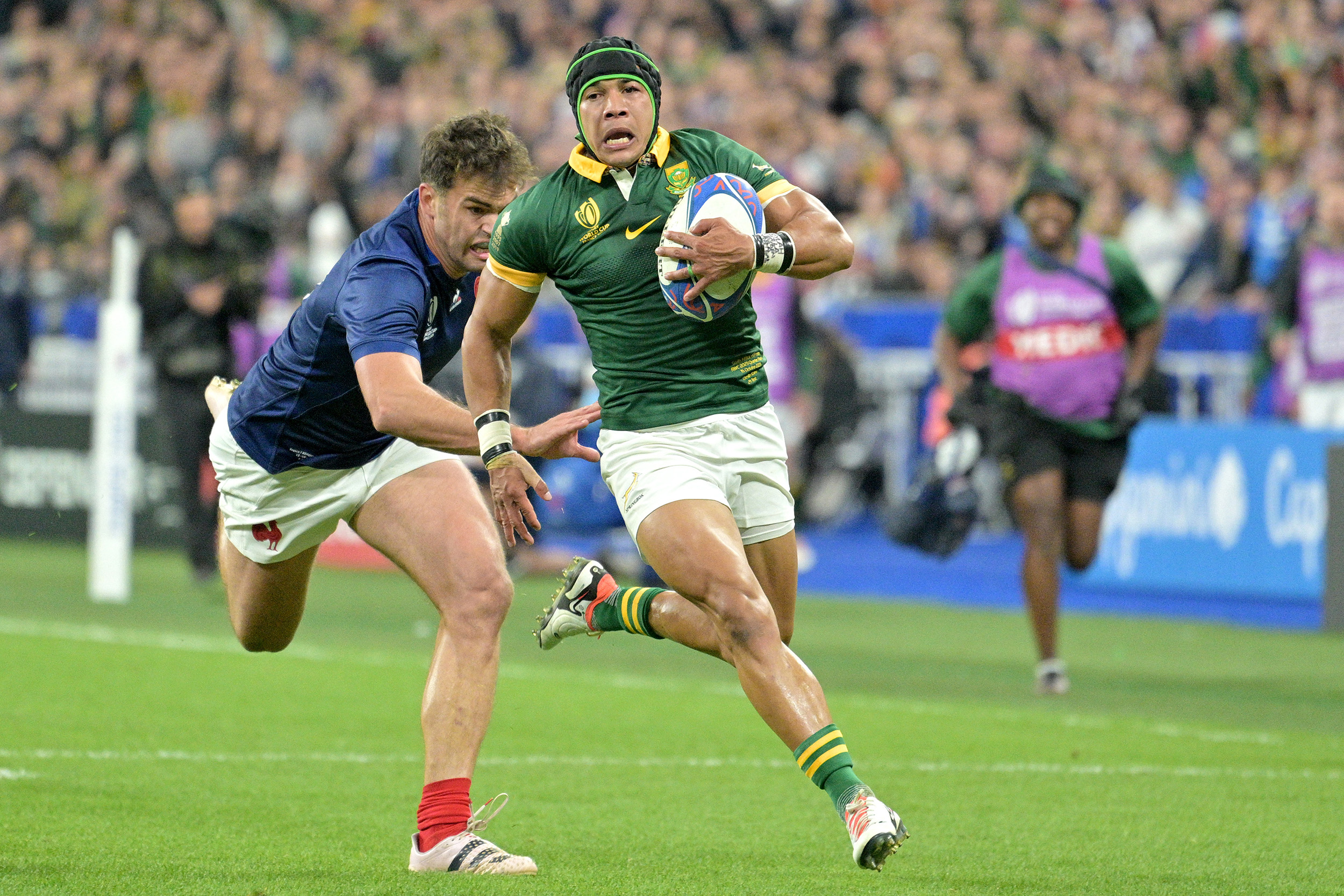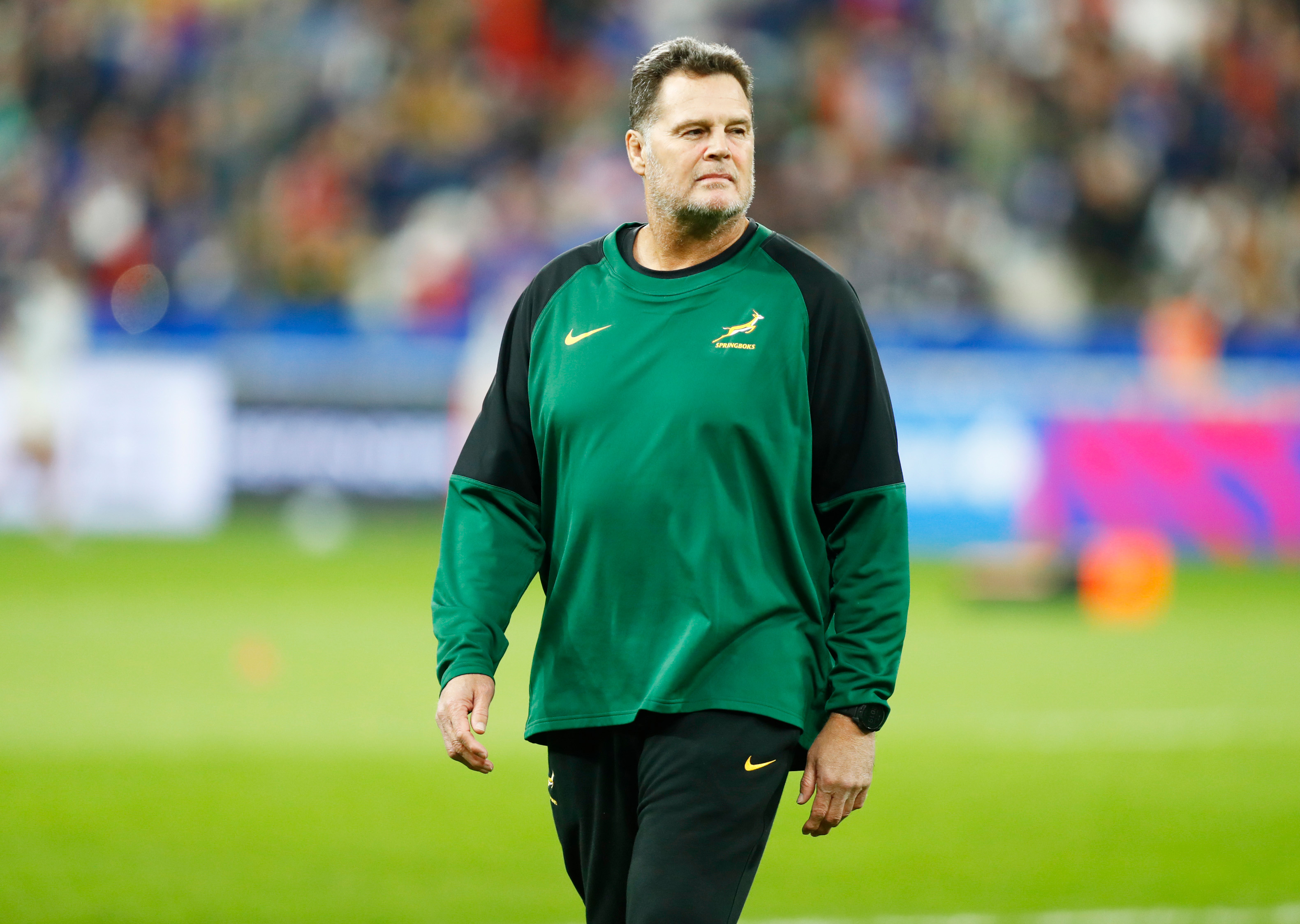There is no definitive way of knowing if Springbok director of rugby Rassie Erasmus’ contrition over the lack of respect he showed referees previously had an influence on the outcome of Sunday’s brilliant quarterfinal against France. It might have.
But the fact that the rugby world is calling it one of the best games ever, suggests that referee Ben O’Keeffe had a good game. He wasn’t the defining factor in the outcome — at least to most observers outside France.
Incidentally, O'Keeffe will handle Saturday's semi-final between the Boks and England as well. Australian Angus Gardner will take charge of the All Blacks against Argentina.
After last November’s Northern Hemisphere tour, the Springboks made a collective decision that they (well, Rassie really) would show match officials respect regardless of the outcome of matches. In future, they offer nothing but respect to officials even if they believe them to be wrong.
Problems and questions would only be raised in private and through formal channels. The change of mindset might have had benefits when it came to 50/50 calls on the field but in reality, the biggest benefit was to Springbok players themselves.
They’ve shed the victim mentality. They’ve moved away from finding fault with the refs and it’s been liberating. Players have been emboldened to play hard and on the edge without worrying about decisions. It’s cathartic because they spend more energy on doing their jobs and less worrying about the officials.
By contrast French players and the understandably myopic crowd at Stade de France were at referee O’Keeffe all night as the Boks edged Les Bleus 29-28 in a fantastic game.
Read more in Daily Maverick: Narrowest of margins: Brutal Boks find a way to edge Les Bleus in Paris quarterfinal thriller
French players regularly gave O’Keeffe a mouthful and while some tight calls might have gone against them, the same could be said the other way.
France captain Antoine Dupont was critical of O’Keeffe after his side lost, saying he wasn’t up to the task.
“I’m not sure the refereeing was at the level of what was at stake,” Dupont said.
“There are few clear things where the whistle could’ve blown. We could’ve had some crucial penalties, but I don’t want to be a bad loser.” Which is precisely what he was being, although it was said in the aftermath of mammoth disappointment.
 Eben Etzebeth of South Africa is shown a yellow card by referee Ben O’Keeffe and he signals a TMO Bunker Review. (Photo: Hannah Peters/Getty Images)
Eben Etzebeth of South Africa is shown a yellow card by referee Ben O’Keeffe and he signals a TMO Bunker Review. (Photo: Hannah Peters/Getty Images)
Difficult job
Rugby played at this level, between sides that are so closely matched, will always have some marginal calls.
The laws themselves are almost impossible to apply with consistency. For example, there are more than 20 possible infringements at every breakdown and there are literally hundreds of dynamic events in a match. A referee has to make decisions on all of those in a split second.
That’s not to say they get everything right, but that they are trying to do an almost impossible job, as accurately as possible.
And they are humans. People don’t like being shouted at, they don’t like having their mistakes pointed out and they certainly don’t like being castigated in the media.
Read more in Daily Maverick: Rugby World Cup News Hub
The Boks, well Erasmus, did that for a time. He was suspended and punished and perhaps his team was too. The change of heart and approach might also have been the vital edge the Boks needed on Sunday night, as France discovered to their great cost.
It’s a lesson Dupont will have to learn as well.
 Bok wing Cheslin Kolbe beats France's Damian Penaud to score the Springbok's third try in the quarterfinal, underlining the Boks' new attacking mindset. (Photo: Lionel Hahn/Getty Images)
Bok wing Cheslin Kolbe beats France's Damian Penaud to score the Springbok's third try in the quarterfinal, underlining the Boks' new attacking mindset. (Photo: Lionel Hahn/Getty Images)
Change of approach
“Our whole motto has been, ‘let’s respect the referees’. It works both ways,” Erasmus said the day after Sunday’s gruelling win.
“He’s going to make mistakes and we’re going to make mistakes. And the frustration we had in the past, and the lack of communication because of various things with Covid ... that is in the past. There’s a nice protocol in place, it's easy to communicate with them.
“I wouldn't like to comment on what they (France) said about the referee (after in the quarterfinal). We are just working on accepting that there will be mistakes on both sides, which is something that we had to get right and we had to earn the respect back and I think it's slowly happening.”
The Boks not only changed their attitude to refereeing mistakes, they also considered how they could play in a way to make the official’s jobs easier.
It’s brilliant logic.
The Boks expanded their game, gave the referees more ‘pictures’ to consider. It widened the focus and perception of South Africa’s style. In short, they sent a message to referees that they’re not only a scrumming and mauling team.
By definition, a referee who sees a scrum or a lineout simply as a starter play, is less likely to give the Boks leeway in those areas. He wants the game to flow, and the Boks grinding out scrums and mauls creates a picture in his mind of a ‘negative’ team.
So, the Boks changed their game to adapt to referees.
“To be honest with you and I am serious when I say this, I will never forget that post that last French game (November 2022), I tweeted several times and a lot of people said it was controversial,” Erasmus said this week.
“But I can remember my caption there was ‘we will have to adapt and make things clearer for referees, we can't just rely on mauling, scrumming and close-contact work where it is very difficult for the referee to make the correct decision’.
“It’s very dynamic and it’s busy and there are grey areas there.
“So, we had to adapt. Also, we had to attempt to score more tries through open, fluent, running rugby. And you could see in our try-scoring tally there's a lot scored by our backs. More than our forwards.
“If you only rely on a certain aspect of the game which is very tough for the referee to referee and he gets two (decisions) wrong but you only relying on those three or four or five opportunities that you get, 50% of your opportunities are gone.
“But if you fire shots in open play, general play from the top of lineouts or counter-attack, it’s clearer decisions for the referee and easier to make.
“As a team, we don’t want to be this wonderful playing rugby team that the whole world loves, but we do want to score tries.
“We have changed our whole approach. We conceded six penalties (against France).
“Since we’ve changed our way, no matter if we are correct and the referees are wrong, respect must always be shown.”
France might want to heed Erasmus’ lesson because it was hard-earned. DM




 Cheslin Kolbe of South Africa beats Damian Penaud of France to score the Springbok's third try during Rugby World Cup quarter finals. (Photo: Lionel Hahn/Getty Images)
Cheslin Kolbe of South Africa beats Damian Penaud of France to score the Springbok's third try during Rugby World Cup quarter finals. (Photo: Lionel Hahn/Getty Images) 